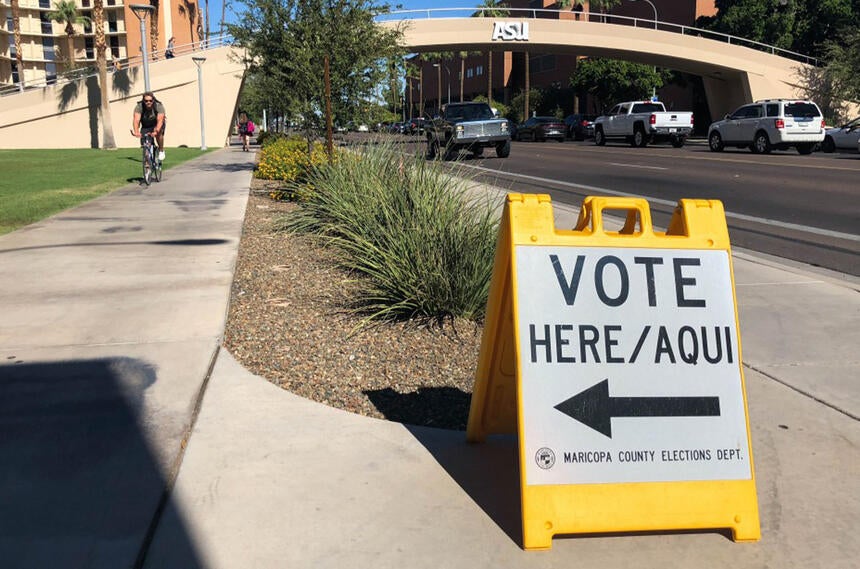
Complacency a cause of Arizona's voting crisis
Published on
Arizona State University's State Press reported that in 2016, almost half of Arizona’s population did not vote in the presidential election and less than three percent of ASU’s student body voted last spring in the USG elections.
Because elections give people the power to control many aspects of their daily lives, ASU public policy experts said low voter participation is creating a crisis situation for democracy.
“The first step in responding to a crisis is to first admit there is a crisis,” said a research report by Joseph Garcia and David Daugherty of ASU's Morrison Institute for Public Policy.
In their report, Garcia, director of communications and community impact and Daugherty, acting director of research, said the issue begins with a feeling of complacency.
“Students may think that first, 'I don’t care who gets elected because I don’t think it’s going to impact me,' and second, 'my vote probably doesn’t count anyway',” Daugherty said. “Until any voter ... understands the outcome of what they are voting on, they’re probably not going to vote.”
Garcia said students are often focused on short-term politics and large-scale issues that are feasts for the media. However, much of what actually impacts ASU students and millennials alike are the smaller issues such as budget cuts to a certain school program or state legislation that may change a state policy.
“It’s about making the connection between voting in the election and your personal life,” he said. “Young people can change the world, but I don’t think they can change it without voting,” Garcia said. “There are a lot of great ideas out there, some wonderful idealism, but without putting decision makers and policy makers into power through the ballot box and election, you’re almost cancelling out those ideas and ideals.”
READ: ASU public policy experts address low voter participation 'crisis'